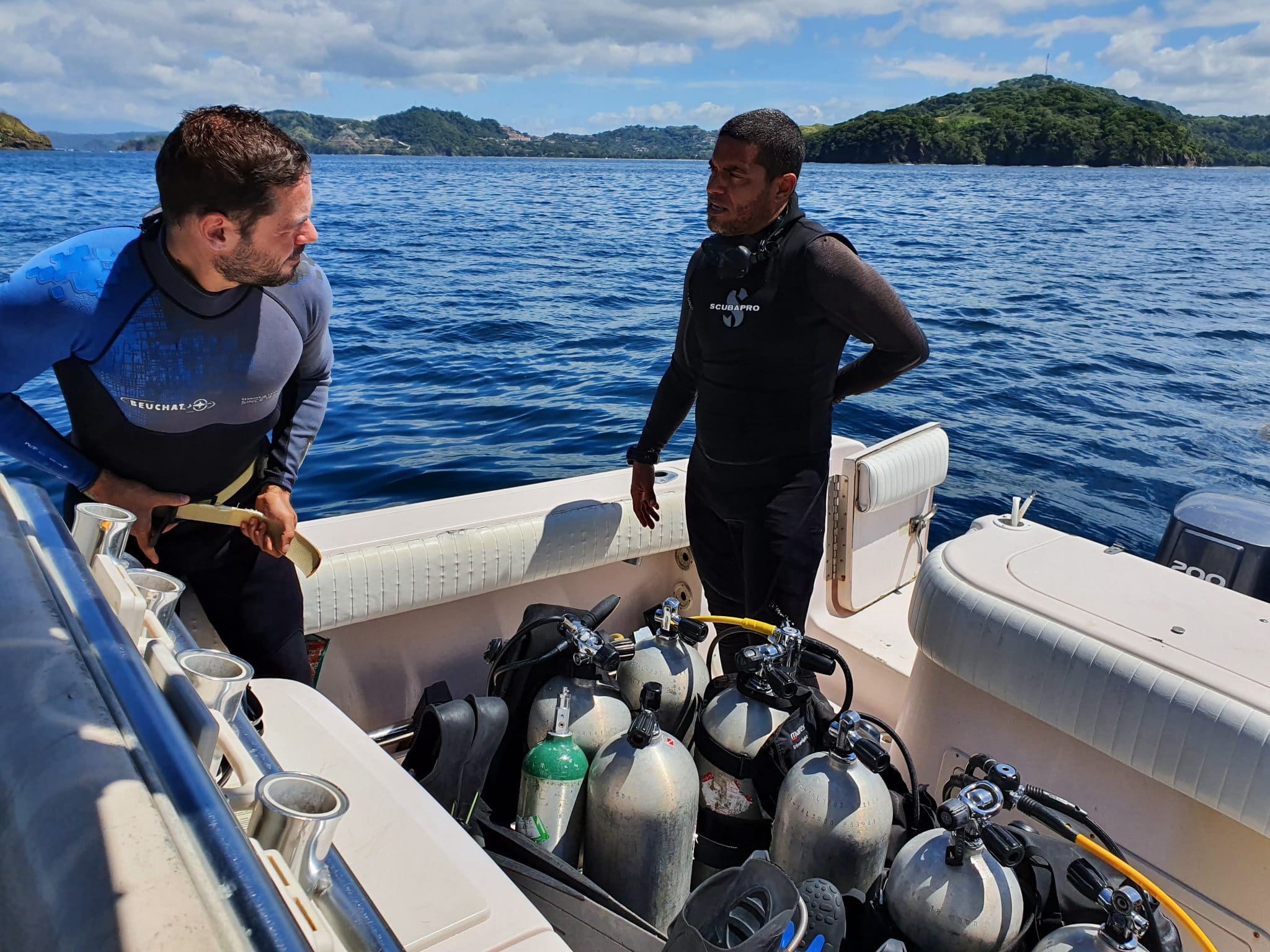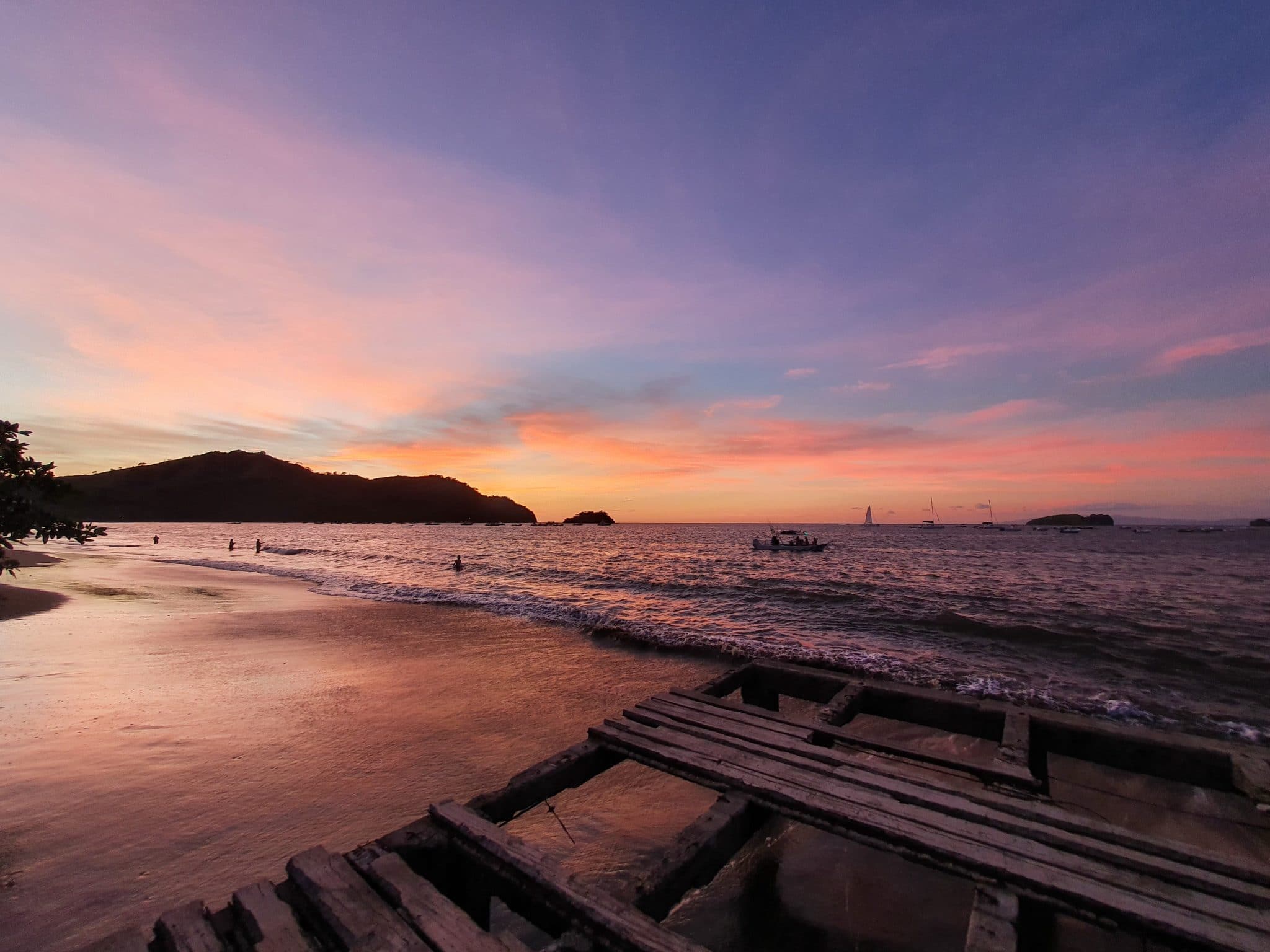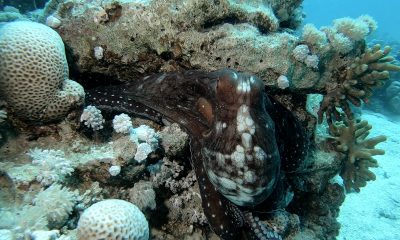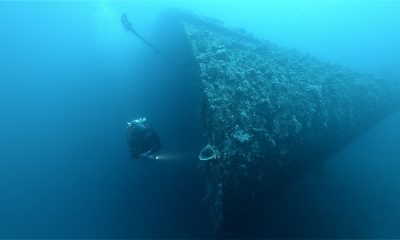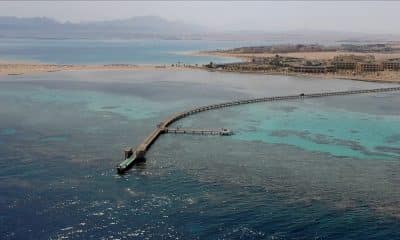Marine Life & Conservation
Reef-World launches Green Fins Costa Rica
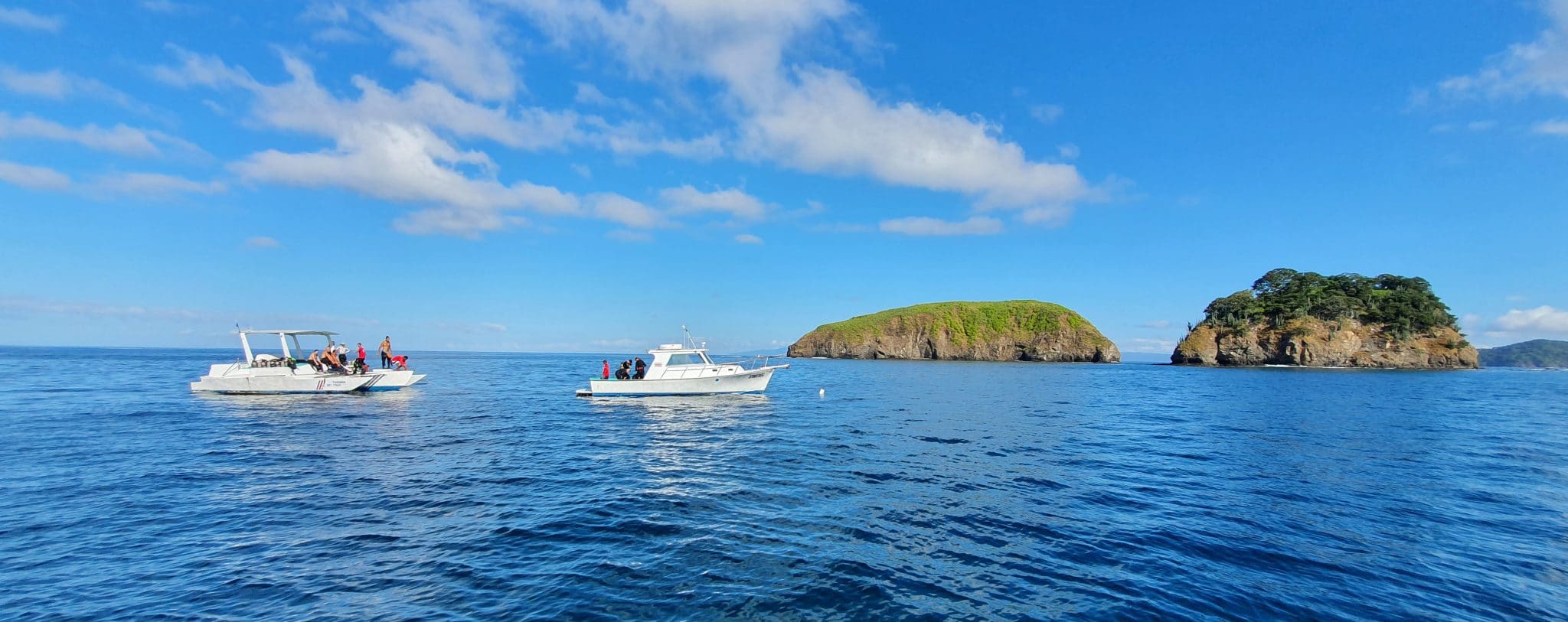
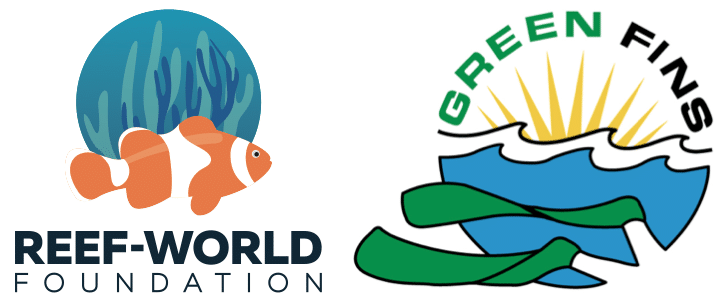 The Reef-World Foundation, the National System of Conservation Areas (SINAC) and Misión Tiburón are delighted to announce that Costa Rica has joined 13 other countries globally to implement the Green Fins initiative — a UN Environment Programme initiative. Costa Rica is the first country on the American continent to adopt Green Fins environmental standards to reduce the threats associated with diving and snorkelling on the marine environment.
The Reef-World Foundation, the National System of Conservation Areas (SINAC) and Misión Tiburón are delighted to announce that Costa Rica has joined 13 other countries globally to implement the Green Fins initiative — a UN Environment Programme initiative. Costa Rica is the first country on the American continent to adopt Green Fins environmental standards to reduce the threats associated with diving and snorkelling on the marine environment.
Green Fins is implemented in Costa Rica by Misión Tiburón through the National System of Conservation Areas (SINAC) with support from Cynthia Barzuna Gutiérrez, Vice Minister of Water and Seas. Green Fins is being piloted in Guanacaste province, the North Pacific of Costa Rica, a major hub for scuba diving and snorkelling, as the first step in a national process. In North Pacific Costa Rica itself, there are around 50 sites with ideal conditions for snorkelling and recreational diving. Scuba diving tourism is a source of employment for many families in communities such as Playas del Coco, Brasilito or Tamarindo. Ensuring the sustainable use of these dive and snorkel sites is essential so that they continue to be a source of employment for current and future generations.
Over the last 10 years, the tourism industry in Costa Rica has seen a steady increase. The implementation of Green Fins in Costa Rica responds to the national and international goals set to reduce threats to biodiversity. One of its goals is to increase the number of marine tourism companies with sustainability certifications to promote a sustainable diving and snorkelling industry in the country. The adoption of Green Fins in the country also contributes directly to the Sustainable Development Goals 12 and 14, established by the United Nations and adopted by Costa Rica.
Following a week of training by Reef-World (9 to 14 November 2021), Costa Rica now has a national Green Fins team comprised of four fully certified Green Fins Assessors from Misión Tiburón and one Green Fins Coordinator from the National System of Conservation Areas (SINAC). They will be responsible for recruiting, assessing, training and certifying dive and snorkel operators to become Green Fins members in the country. This involves providing training about the ecology and threats to coral reefs, simple and local everyday solutions to these threats and Green Fins’ environmental standards to dive and snorkel operators. Green Fins membership will help marine tourism operators improve their sustainability and prove they are following environmental best practices as a way of attracting eco-minded tourists.
James Harvey, Director at The Reef-World Foundation, said: “Marine tourism in Costa Rica is growing fast with high demand from both national and international tourists coming to visit the incredible marine species that the country has to offer. Implementing best practices and guidelines through the Green Fins approach with support from the government of Costa Rica is critical to ensure that this market is sustainably managed, protecting valuable marine ecosystems for years to come. The national team of SINAC and Misión Tiburón have set out ambitious yet realistic targets to achieve a high level of uptake of Green Fins amongst dive and snorkel operators across the country. This will reduce local threats to the marine environment and increase corals and other marine life’s resilience to wider global impacts, including climate change.”
Diving and snorkelling related damage to sensitive marine ecosystems, including coral reefs, is becoming an increasingly significant issue. This damage makes them less likely to survive other local and wider stressors, such as overfishing or plastic debris and the effects of climate change, such as rising sea temperatures. Based on robust individual assessments, the Green Fins initiative helps identify and mitigate these risks by providing environmental consultation and support to dive and snorkel operators. Through Green Fins implementation in Costa Rica, Reef-World aims to reduce negative environmental impacts in the region by reaching 14 marine tourism operators, training 70 dive guides and raising awareness of sustainability best practices among 14,000 tourists in the first year.
Ilena Zanella, Director of the Misión Tiburón, said: “The diving and snorkelling industry is an important ally to promote conservation practices on our marine and coastal ecosystems. Thanks to the industry’s natural involvement with these ecosystems, threats can be mitigated, and a more sustainable diving and snorkelling industry that follows Green Fins international standards can be established.”
Green Fins is a UN Environment Programme initiative, internationally coordinated by The Reef-World Foundation, which aims to protect and conserve coral reefs through environmentally friendly guidelines to promote a sustainable diving and snorkelling tourism industry. Green Fins provides the only internationally recognised environmental standards for the diving and snorkelling industry and has a robust assessment system to measure compliance. Reducing diving and snorkelling-related damage to sensitive marine ecosystems, including coral reefs, helps to make them more resilient to other stressors such as those associated with climate change.
The Green Fins approach includes proven assessment criteria to identify and mitigate high-risk practices above and below the water. Green Fins members are evaluated annually based on a 15-point code of conduct, which measures the company’s impact on coral reefs: of a possible score of 330, the lower the score, the lower its impact. The robust assessment then enables Green Fins Assessors to provide one-to-one consultation to help the business develop and implement best practice to improve the sustainability of the marine tourism industry.
The individual feedback from the assessments of the pioneering Green Fins members in Costa Rica and support provided includes practical, low-cost alternatives to common threats to the marine environment such as anchoring, provision of single-use plastics such as plastic bottles and lack of awareness of existing rules and regulations – is based on each company’s area of highest negative impact on the reef, as determined by the assessment.
To date, four Costa Rican dive operators have already joined the global network of 600+ trained and assessed Green Fins members. These are: Deep Blue Diving, Kraken Divers, El Refugio Guanacaste and Rich Coast Diving. There has also been significant interest from other operators who have signed the membership form and are looking forward to their training and assessment.
Mauricio Méndez, Technical Director of National System of Conservation Areas (SINAC), said: “Green Fins serve as an important tool for local diving communities to move towards a more sustainable use of their dive sites; so that they can maintain their scenic beauty and biological richness to provide livelihoods for many generations to come.”
The launch of Green Fins Costa Rica was made possible thanks to financing support from IDB Lab under the Beyond Tourism Challenge. The Beyond Tourism Innovation Challenge was run by the Inter-American Development Bank (IDB) through its innovation laboratory, IDB Lab, and in collaboration with the United Nations World Tourism Organization (UNWTO).
For more information, please visit www.reef-world.org, www.greenfins.net/countries/
Costa Rican dive and snorkel operators interested in signing up to be Green Fins members can contact the Green Fins Team at Misión Tiburón (costarica@greenfins.net).
Marine Life & Conservation
Leading UK-based shark conservation charity, the Shark Trust, is delighted to announce tour operator Diverse Travel as a Corporate Patron

 Corporate Patrons provide a valuable boost to the work of The Shark Trust. The Trust team works globally to safeguard the future of sharks, and their close cousins, the skates and rays, engaging with a global network of scientists, policymakers, conservation professionals, businesses and supporters to further shark conservation.
Corporate Patrons provide a valuable boost to the work of The Shark Trust. The Trust team works globally to safeguard the future of sharks, and their close cousins, the skates and rays, engaging with a global network of scientists, policymakers, conservation professionals, businesses and supporters to further shark conservation.
Specialist tour operator Diverse Travel has operated since 2014 and is committed to offering its guests high quality, sustainable scuba diving holidays worldwide. Working together with the Shark Trust will enable both organisations to widen engagement and encourage divers and snorkellers to actively get involved in shark conservation.
“Sharks are truly at the heart of every diver and at Diverse Travel, we absolutely share that passion. There is nothing like seeing a shark in the wild – it’s a moment that stays with you forever!” says Holly Bredin, Sales & Marketing Manager, Diverse Travel.
“We’re delighted to celebrate our 10th year of business by becoming a Corporate Patron of the Shark Trust. This is an exciting partnership for Diverse and our guests. We will be donating on behalf of every person who books a holiday with us to contribute towards their vital shark conservation initiatives around the world. We will also be working together with the Trust to inspire divers, snorkellers and other travellers to take an active role – at home and abroad – in citizen science projects and other activities.”
Paul Cox, CEO of The Shark Trust, said:
“It’s an exciting partnership and we’re thrilled to be working with Diverse Travel to enable more divers and travellers to get involved with sharks and shark conservation. Sharks face considerable conservation challenges but, through collaboration and collective action, we can secure a brighter future for sharks and their ocean home. This new partnership takes us one more valuable step towards that goal.”
For more information about the Shark Trust visit their website here.
For more about Diverse Travel click here.
Marine Life & Conservation
Shark Trust Asks Divers to help with Shark Sightings this Global Citizen Science Month

 Whether you are stuck for ideas of what to do with the kids or are off on the dive trip of your dreams. You can get involved in Citizen Science Month and help the Shark Trust by providing vital data about sharks are rays both close to home and further afield.
Whether you are stuck for ideas of what to do with the kids or are off on the dive trip of your dreams. You can get involved in Citizen Science Month and help the Shark Trust by providing vital data about sharks are rays both close to home and further afield.
In addition to reporting the sharks and rays you see on your dives, the eggcases you find on the beach, the Shark Trust is looking for some specific data from divers who are asked to report any Oceanic Whitetip and Basking Sharks.
Oceanic Whitetip Sharks
The Shark Trust are looking specifically for Oceanic Whitetip Shark sightings over the coming weeks and months. So, if you are diving anywhere in the world, please report your sightings via the website or app.
Website: https://recording.sharktrust.org/
App: Search The Shark Trust in your app store
The Oceanic Whitetip. Known for their incredibly long dorsal and pectoral fins, this species was once the most abundant oceanic-pelagic species of shark on the planet.
Large and stocky, they are grey or brown above, and white below and famous for their huge rounded first dorsal fin and paddle-like pectoral fins. The fins also highly prized within the shark fin trade. Whilst they are mostly solitary, Oceanic Whitetips do occasionally hunt in groups.
An inquisitive species, they were easy prey for fisheries. Combined with their low reproductive rate, they were inevitably at high risk of population depletion. And declines of up to 99% have been reported in certain sea areas. They are listed as Critically Endangered on the IUCN Redlist (2019).
Conservation efforts to discourage further declines include listing on CITES Appendix II and CMS Appendix I. They’re also the only species prohibited from take by all the Tuna RFMOs (Regional Fisheries Management Organisations). However, these measures do not mean that Oceanic Whitetips are not still caught – whether targeted or as bycatch – in some parts of the world. With populations declining at such a high rate, effective implementation of management measures is essential to ensure that the species can recover.
If you are lucky enough to get an image of an Oceanic Whitetip and you record your sighting on the Shark Trust app or website YOU CAN WIN! All images submitted with sightings, that also give consent to use in conservation messaging, will be in with a chance to win an Oceanic Whitetip T-shirt and mug. The competition will run until the end of “Shark Month” in July – so keep those sightings (and images) coming in.
Basking Sharks
Basking Shark (Cetorhinus maximus) season is upon us, and the Shark Trust is asking everyone to keep an eye out for these majestic giants over the summer months. If you see any, you can record your sighting to the Basking Shark Sightings database.
Each year, these mighty fish return to British waters to feed on plankton. You may see one, (or a few if you’re really lucky) from around April-October. They can be seen feeding at the surface of the water, where they look like they’re basking in the sun. Thus, their name!
Sighting hotspots around the British Isles include southwest England, Isle of Man, north coast of Ireland, and western Scotland. The Sea of the Hebrides is the most prolific sightings area in Scotland, but they have been spotted all around the coast and have even ventured into some of the sea lochs. The Shark Trust has received thousands of sightings since the Basking Shark project began, but more data is needed to truly understand what is going on with population numbers and distribution. You can help by recording your sightings this summer.
Great Eggcase Hunt
The Shark Trust has an Easter Egg Hunt with a difference for you to try. Take part in the Great Eggcase Hunt and get involved with a big citizen science project that helps shark, ray and skate conservation. And it’s an enjoyable activity for all the family.
The Shark Trust also want snorkellers and divers to record their underwater eggcase findings. Underwater records help pinpoint exactly where sharks and skates are laying their eggs and can help link to beach records. Learning the depth and substrate that they lay on also helps better understand the species.
Find out more: https://www.sharktrust.org/great-eggcase-hunt
Whether you are diving, snorkelling or exploring on the beach you can take part in Citizen Science Month and get actively involved in shark and ray conservation. Find out more: www.sharktrust.org
-

 News3 months ago
News3 months agoHone your underwater photography skills with Alphamarine Photography at Red Sea Diving Safari in March
-

 News2 months ago
News2 months agoCapturing Critters in Lembeh Underwater Photography Workshop 2024: Event Roundup
-

 Marine Life & Conservation Blogs2 months ago
Marine Life & Conservation Blogs2 months agoCreature Feature: Swell Sharks
-

 Blogs1 month ago
Blogs1 month agoMurex Resorts: Passport to Paradise!
-

 Blogs2 months ago
Blogs2 months agoDiver Discovering Whale Skeletons Beneath Ice Judged World’s Best Underwater Photograph
-

 Gear News3 months ago
Gear News3 months agoBare X-Mission Drysuit: Ideal for Both Technical and Recreational Divers
-

 Gear Reviews2 months ago
Gear Reviews2 months agoGear Review: Oceanic+ Dive Housing for iPhone
-

 Marine Life & Conservation2 months ago
Marine Life & Conservation2 months agoSave the Manatee Club launches brand new webcams at Silver Springs State Park, Florida


